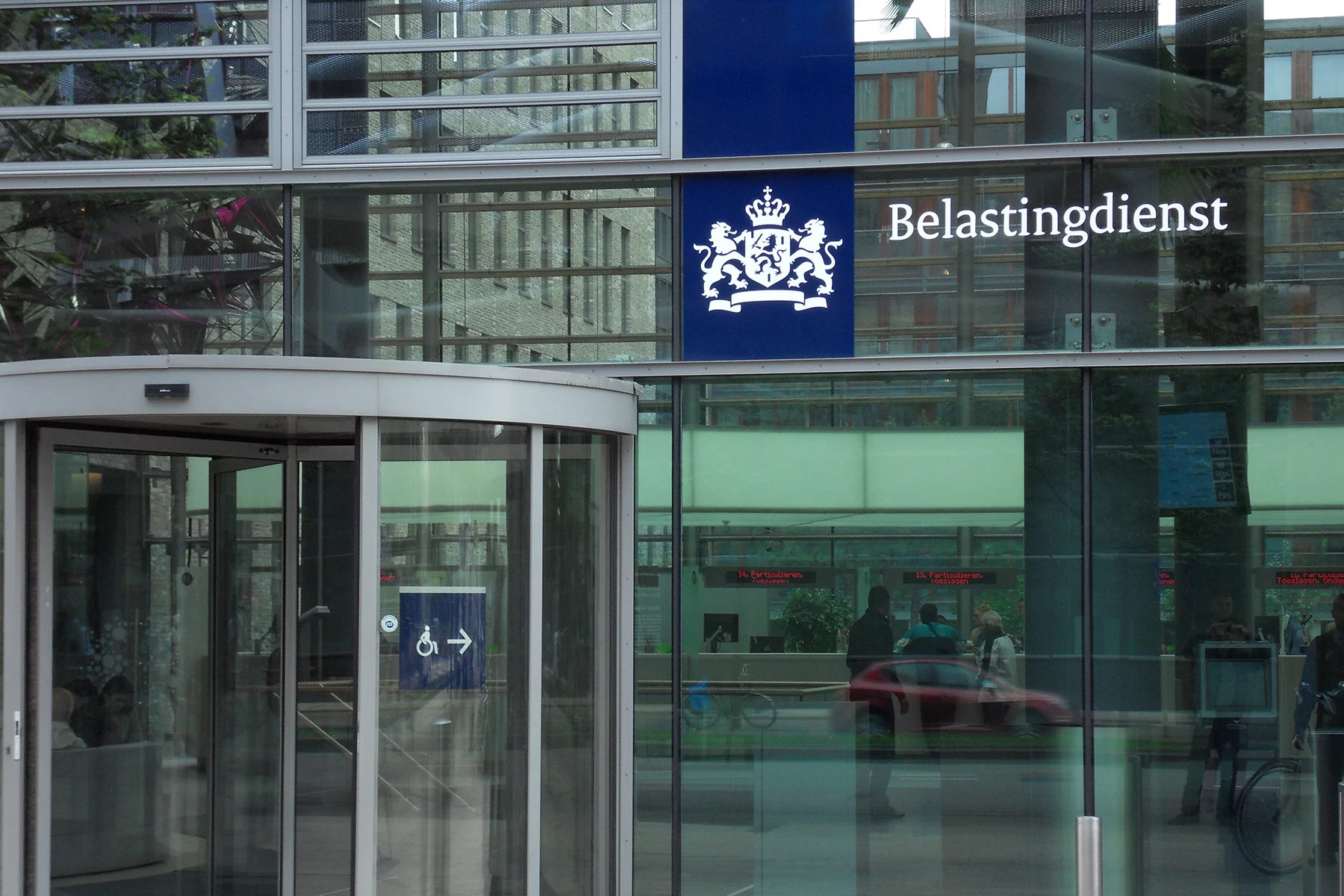Many expats are attracted to retiring with a pension in the Netherlands for its high standard of living, good healthcare, and quality of life. However, the key to a comfortable retirement is planning, and with retirement abroad, it’s even more important you are well-prepared.
This guide to the Dutch pension system explains how pensions in the Netherlands work. It includes advice on the following:
Staden Financial Management
Planning your retirement in the Netherlands? Staden Financial Management offers expert, personalized financial advice tailored to pensioners. Their trusted advisors build clear, transparent plans that reflect your goals and values, giving you confidence and peace of mind for the years ahead.
The Dutch pension system
The Netherlands is one of the best places in the world for retirees, with a robust and sustainable pension system that provides good income to the country’s elderly population.
Around 30% of Dutch residents are over the age of 65, compared to an average of 28% across the 37 OECD countries. Life expectancy is 82, slightly above the overall average of 81.
The Netherlands ranked as the fifth-best place to retire on the Nataxis 2020 Global Retirement Index, based on health, finances, quality of life, and material wellbeing, rising from 10th place in 2019. The Dutch pension system topped the table in Mercer’s 2020 Global Pensions Index, with high ratings for adequacy, sustainability, and integrity.
The Dutch pension system has three pillars: state, workplace, and private pensions. The Sociale Verzekeringsbank (SVB) administers state pensions under the terms of the General Old Age Pensions Act (Algemene Ouderdomswet, or AOW). The state pension is commonly referred to as the AOW.
Dutch pension funds held $1.7 trillion of assets in 2019, behind only the United States, United Kingdom, and Australia. Total pension fund assets were 191% of GDP, more than any other OECD nation.
Who is eligible for pensions in the Netherlands?
Pension age in the Netherlands
The Dutch state pension age in 2020 is 66 and four months, having risen from 65 in 2018. It will rise to 67 in 2024.
The date you receive your Dutch pension depends on when you were born. The SVB offers a Dutch pension age calculator to find your individual retirement age.
It’s possible to retire early in the Netherlands, but you’ll typically need to finance this yourself, as you won’t receive your full state pension until you reach official Dutch pension age. You may also be eligible for bridging benefits (vergelijkbare uitkering or VUT) if you meet the SVB’s conditions.
It’s also possible to work beyond your standard retirement age to build up a bigger pension if you so desire.
Who can claim a state pension in the Netherlands?
For each year you live or work in the Netherlands, you build 2% towards your state pension. To receive the full pension (100%), you must have 50 years of contributions. If you don’t have the full allocation, your pension is calculated based on the number of years you contributed.
If you move outside the Netherlands, this can reduce your pension amount/ Individuals aged between 15 and 65 can lose 2% of their Dutch pension for every year they haven’t lived in the Netherlands.
In some circumstances, foreigners working abroad can still benefit from the Dutch pension system. For example, some expats choose to take out voluntary state pension insurance within 12 months of moving abroad.
What happens if you are not eligible for a full pension?
If you’re not eligible for a full AOW state pension, you may still be able to apply for an AIO supplement.
The AIO is a supplement that can bring your income up to the level of the Dutch guaranteed minimum income. To qualify, you’ll need to be of pension age, live in the Netherlands, be unable to get a full state pension, and have little or no other income or assets.
The maximum AIO supplement in 2020 is €1,250.05 a month for residents who live on their own. If you live with your partner and you both need an AIO supplement, you can collectively receive €1,526.54 a month. If your partner does not require a supplement, you could be eligible for up to €763.27 a month. You can find out even more about eligibility on the SVB website.
Pensions in the Netherlands for expats
The Netherlands is a member of the European Union (EU) and the Schengen Area. This means citizens from the EU, European Economic Area (EEA), or Switzerland can legally reside, work, and retire without a visa.
Non-EU nationals will typically require a Dutch visa. After five consecutive years of living in the Netherlands, you will be able to apply for a permanent residence permit.
Transferring your pension to the Netherlands
EU/EEA and Swiss nationals are able to combine state pensions earned in other member countries to count towards their Dutch pension. You can do this by notifying the pension office in the country you currently reside in. It will then calculate a pro-rata pension allowance from each country. The EU provides an explanation on its website.
The Netherlands has various bilateral social security agreements with other countries that allow foreign citizens to transfer international pension funds to retire to the Netherlands.
These agreements alleviate the tax implications of transferring pension funds, such as double taxation (where you must pay tax in your country of residence and nationality).
The countries that have bilateral social security agreements with the Netherlands are:
- Argentina
- Australia
- Belize
- Bosnia and Herzegovina
- Cabo Verde
- Canada
- Channel Islands
- Chile
- Ecuador
- Egypt
- Hong Kong
- India
- Indonesia
- Israel (excluding East Jerusalem, Golan, the Gaza Strip, the West Bank)
- Japan
- Jordan
- Kosovo
- Mali
- Monaco
- Montenegro
- Morocco
- North Macedonia
- New Zealand
- Panama
- Paraguay
- Philippines
- Serbia
- South Africa
- South Korea
- Suriname
- Thailand
- Tunisia
- Türkiye
- United States
- Uruguay
If you live outside the Netherlands, certain nationals can transfer their Dutch pension abroad; you can also check if this is possible for your country of residence using the SVB’s tool. In some cases, residents moving out of the Netherlands can claim remigration benefits to cover monthly living expenses.
Transferring your pension using QROPS
In some cases, offshore options such as the Qualifying Recognised Overseas Pension Scheme (QROPS) for UK pensions can help you avoid certain tax implications when transferring your pension.
Expats moving abroad from the UK may be able to transfer their pensions into a QROPS. This allows expats to consolidate their pensions into one plan, helping them manage their retirement funds more easily and avoid currency fluctuations.
There are many advantages to QROPS but they are not suitable or available to all UK pensioners, so we recommend you take advice from an expert financial adviser.
Dutch pension rates and contributions
There are three pillars to the Dutch pension system:
- The Dutch state pension (AOW) makes up the first pillar. All residents make tax and social security contributions.
- Occupational/company pensions funded by employer and employee contributions form the second pillar.
- Private pension schemes (annuities) funded by voluntary personal contributions make up the third pillar.
Your Dutch pension fund is calculated based on your social security contributions, employer and employee contributions from occupational pensions, and optional private pension schemes (if applicable).
The Dutch state pension
The Dutch state pension is funded by worker contributions, at a rate of 17.9% of salary.
Single pensioners entitled to the full state pension can receive a gross total of €1,270.67 in 2020 (70% of the net minimum wage), while married or cohabiting couples can receive €870.03 for (50% of net minimum wage).
This sum doesn’t take into account health insurance contributions of €69.19 (single) or €47.41 (couples), plus tax and national insurance contributions of €246.25 (single) or €169.92 (couples) if no tax exemptions apply. An additional holiday allowance of €69.19 gross per month (or €49.42 for couples) is also available. This is paid out in May.
Overall pension income in the Netherlands is subject to tax. Certain pensioners must also pay national insurance, while all must make health insurance contributions. Pensioners can gain beneficial tax rates, and the amount you pay will depend on your personal circumstances.
Workplace pensions in the Netherlands
Around 90% of employers offer occupational pension schemes, which are typically handled by an external pension provider. Some occupations have mandatory schemes – for example, the ABP pension fund is required for those that work in the educational or government sectors.
Accordingly, labor-based pensions are additional to the AOW. Besides old-age pensions, private pension plans may also provide benefits for surviving relatives or benefits if you can’t work.
Company pensions take into account an AOW pension, so you won’t make contributions on your whole salary, but rather the AOW deductible part of it. The rates depend on the pension scheme you’re signed up to.
The most common occupational pension schemes are based on the average salary a worker has built up during their career. These schemes have almost entirely replaced final salary schemes.
Employee pensions must be held outside the company of the employer, either in an industry-wide Dutch pension fund, a company scheme or occupational scheme, or by a life insurer. This protects workers’ rights should the employer go bankrupt.
Private pensions in the Netherlands
Another way to supplement your pension is by making voluntary contributions to a private pension fund. Major banks and insurance companies typically offer private pensions.
Private pensions are popular with self-employed people and those who work in sectors without a collective scheme. They can also be useful for workers who want to supplement their state and workplace pensions with extra investments.
Contributions to a private pension fund are typically tax-deductible, though future pensions benefits will be taxed.
Other pensions in the Netherlands
Survivor’s pension
If your partner dies, you may be entitled to access their Dutch pension fund, subject to a number of conditions. For example, you must not yet be of state pension age, and you must either have a child younger than 18 or be at least 45% disabled. These benefits are also available to children, ages 21 and younger, of deceased parents.
There are some exceptions to eligibility, such as an existing terminal illness. You can check if you are eligible for Dutch survivor benefits on the SVB website. Those who have no other income can receive full survivor benefits, otherwise, other income may be partially or totally deducted from the benefits.
Applying for your Dutch pension
You should be automatically enrolled for the state pension, but it’s useful to check that your contributions have been registered correctly from time to time. If you’d like to know how much state pension you’ve built up at any time, you can log-in to the SVB website using your DigiD to request a statement. If you don’t have a DigiD, then you can follow the steps online to apply.
In terms of claiming your pension, the SVB should contact you by post four months before you reach your pension age. If you are living in another country, you may need to contact the SVB yourself six months before you reach retirement age – the SVB provides a guide on its website.
Your employer should provide you with details of eligibility and the application process for your workplace pension.
Getting pension advice
It’s sensible to seek professional financial advice on your Dutch pension, especially if you’re looking to make further investments or combine or transfer pensions from your home country.
If you’d like financial advice on your Dutch pension, the experts at these firms can help:
Otherwise, check out our directory pages, which feature a range of national and local expat pension experts.
Useful resources
- SVB: advice on state pensions
- Pension age calculator
- AOW: the General Old Age Pensions Act






